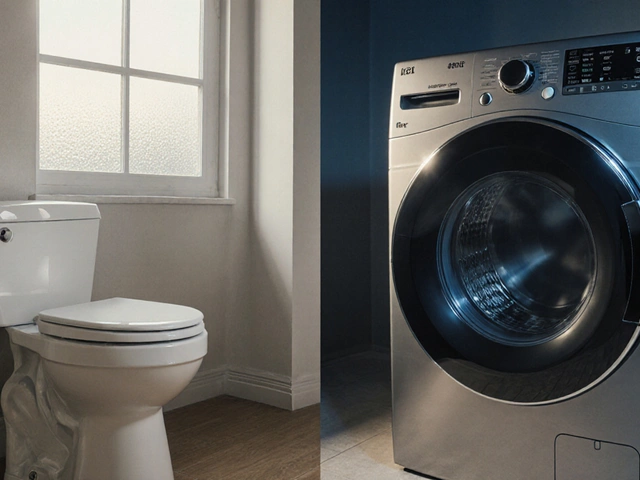Ever wonder why your washing machine suddenly starts making weird noises or smells funky? Most of the time it’s not a major failure – it’s just everyday wear and tear that you can stop early with a few simple habits. Below are the top tricks that keep your washer humming happily and your laundry smelling fresh.
First off, treat your machine like a piece of furniture you’d clean weekly. Wipe the door seal after each load – that rubber ring traps water and lint, and a quick dry prevents mold and bad odors. Leave the door slightly ajar for a few hours after a wash to let the interior air out.
Second, don’t overload. Most people think cramming more clothes saves time, but it stresses the motor and shortens the drum’s lifespan. Follow the manufacturer’s weight limit – usually around 7‑8 kg for a standard front‑loader. If the machine struggles, you’ll hear it straining, and that’s a red flag.
Third, watch the detergent dosage. Too much soap creates extra suds that linger in the drum, leading to buildup and a musty smell. Use the recommended amount for your load size and water hardness. If you have hard water, consider a water‑softening tablet or a low‑sudsing detergent.
Fourth, clean the filter regularly. The lint filter catches fibers and hair, and a clogged filter can cause drainage problems. Most washers have a small access panel near the bottom; empty it every month and rinse with warm water.
Finally, run a maintenance cycle once a month. Most modern machines have a “clean tub” option – just add a cup of white vinegar or a dedicated washing‑machine cleaner and let it run empty. This removes residue, kills mold, and keeps the drum shiny.
Even with the best care, parts wear out. If you notice any of these signs, it’s time to get a professional involved:
Our local experts in Bognor Regis can diagnose these problems quickly. A typical repair for a bearing or pump costs far less than replacing the whole unit, especially when your washer is still within its average 10‑12 year lifespan.
Remember, regular maintenance isn’t just about avoiding breakdowns – it also saves energy. A well‑balanced, clean machine uses less water and electricity, lowering your bills and your carbon footprint.
So next time you toss a load, take a minute to check the seal, use the right detergent amount, and keep the filter clean. Small steps now mean fewer emergency calls later and fresh laundry every time.

Dryers are workhorses in the laundry room, but they aren't immune to problems. This article breaks down the most common issues found in tumble dryers, from weird noises to clothes that just won't get dry. You'll find straightforward explanations for why these problems happen and learn some practical tips to fix or prevent them. Plus, get the inside scoop on when you should call for a pro. Save money, avoid headaches, and keep your dryer running smoother for longer.

Wondering if that decade-old laptop should stick around or be kicked to the curb? This article dives into the practicality, challenges, and potential of keeping a 10-year-old laptop. With tips on upgrading components, performance tweaks, and sustainability, you'll discover whether holding on to an old device is a wise choice. Including pros and cons, this guide offers straightforward advice for the tech-savvy and beginners alike. Explore the balance between nostalgia and functionality in the ever-evolving world of technology.

Ever wondered how long your trusty range oven will last? On average, a well-maintained range oven can serve you for about 10 to 15 years. Routine cleaning and minor repairs can help extend its lifespan. Knowing when to repair or replace your oven is crucial for efficiency and safety. Read on for practical tips to make sure your oven lasts as long as possible.

Learn why a toilet is classified as a plumbing fixture, not an appliance, and how this impacts warranties, insurance, and repair choices.

Who pays for boiler maintenance? Landlords must cover it for tenants. Homeowners pay for everything. Warranties don't cover servicing. Annual checks are legally required and save lives.

Considering replacing your electric oven on your own? Before you jump into action, it's crucial to understand the steps involved and the potential challenges you might face. From ensuring safety precautions to understanding the basic wiring, this article delves into what you need to know. We'll discuss not only the tools and skills required but also when it's better to call in a professional. By the end, you'll have a clearer picture of whether you should tackle this task yourself or seek expert help.